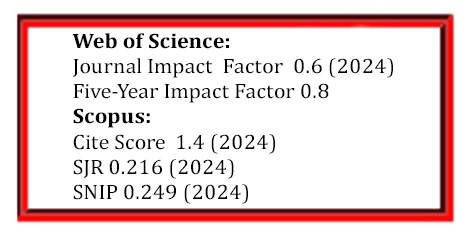Impact of Aliphatic Isocyanates to PVA Dispersion Gluing Properties
Keywords:
PVA dispersion, aliphatic isocyanates, modification, wood bonding.Abstract
Poly(vinyl acetate) is used as adhesive for natural wood bonding. Modifying PVA dispersion it is possible to improve its
bonding characteristics. The paper presents studies of polyvinyl acetate dispersion modified with water dispersible
crosslinkers RHODOCOAT WAT, XWAT-3, XWAT-4, based on aliphatic isocyanates. In this research used
isocyanates have positive property to emulgate in water; therefore it is very easy to add them into various polymers
prepared on water basis. These polymers increase heat resistance and resistance to humidity while applying other
adhesives. For the studies beech wood pieces of 12 % moisture content and 300 mm length, 150 mm width and 5 mm
thickness respectively were chosen. Plastered with modified PVA dispersion samples were compressed in the hydraulic
press “П-472B”, keeping them for 30 minutes and compressing with 0.8 MPa operating pressure. Three temperatures –
20, 60, 125 °C – were used for gluing. The glued pieces were cut into samples of b = 20 mm width and l1 = 150 mm
length and tested in an universal tensile machine “P-0.5”. It was found that PVA modification with aliphatic isocyanates
improves resistance to water of glued joints and are perspective for further research.
Downloads
Published
Issue
Section
License
The copyrights for articles in this journal are retained by the author(s), with first publication rights granted to the journal. By virtue of their appearance in this open-access journal, articles are free to use with proper attribution in educational and other non-commercial settings.



